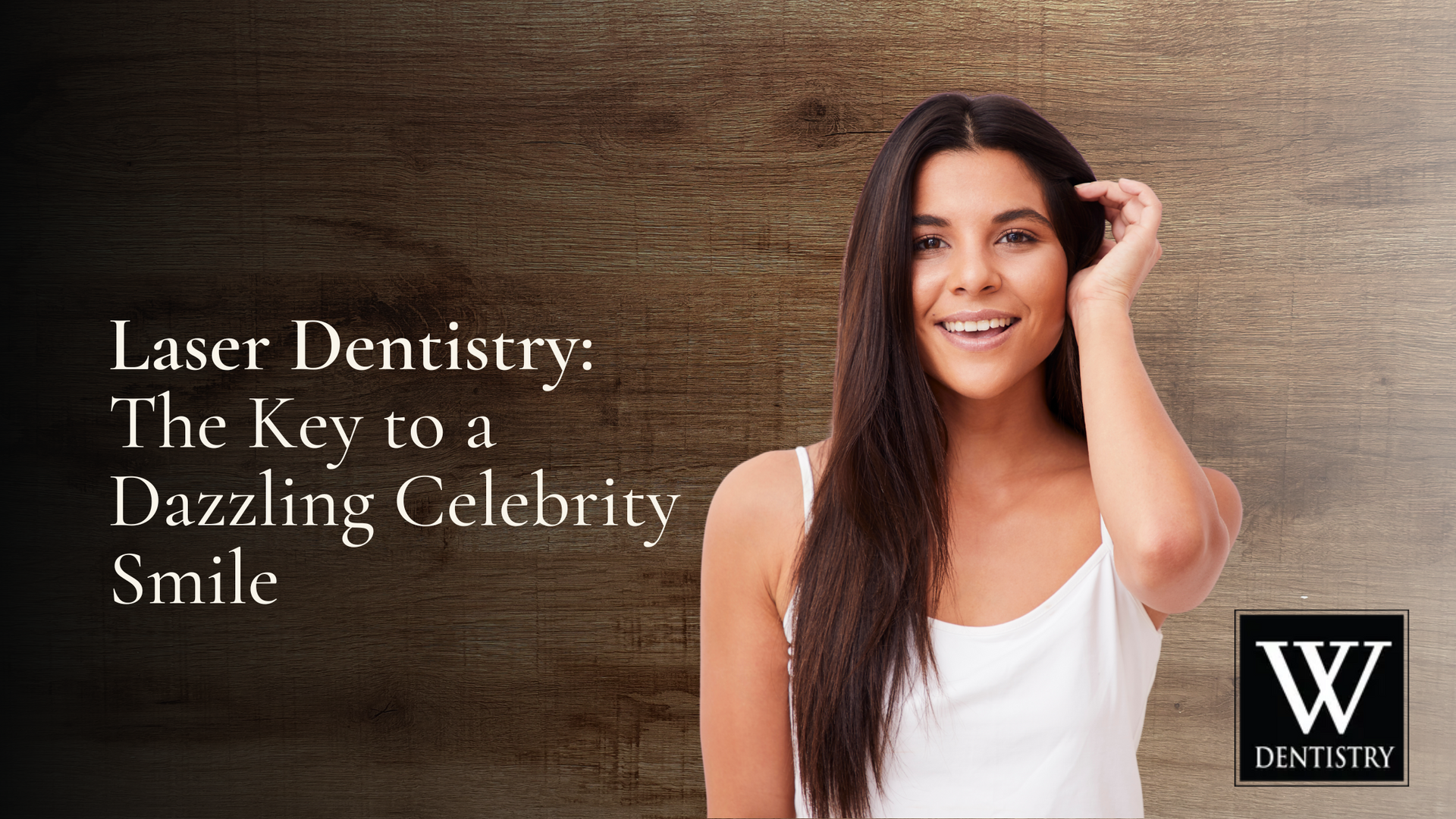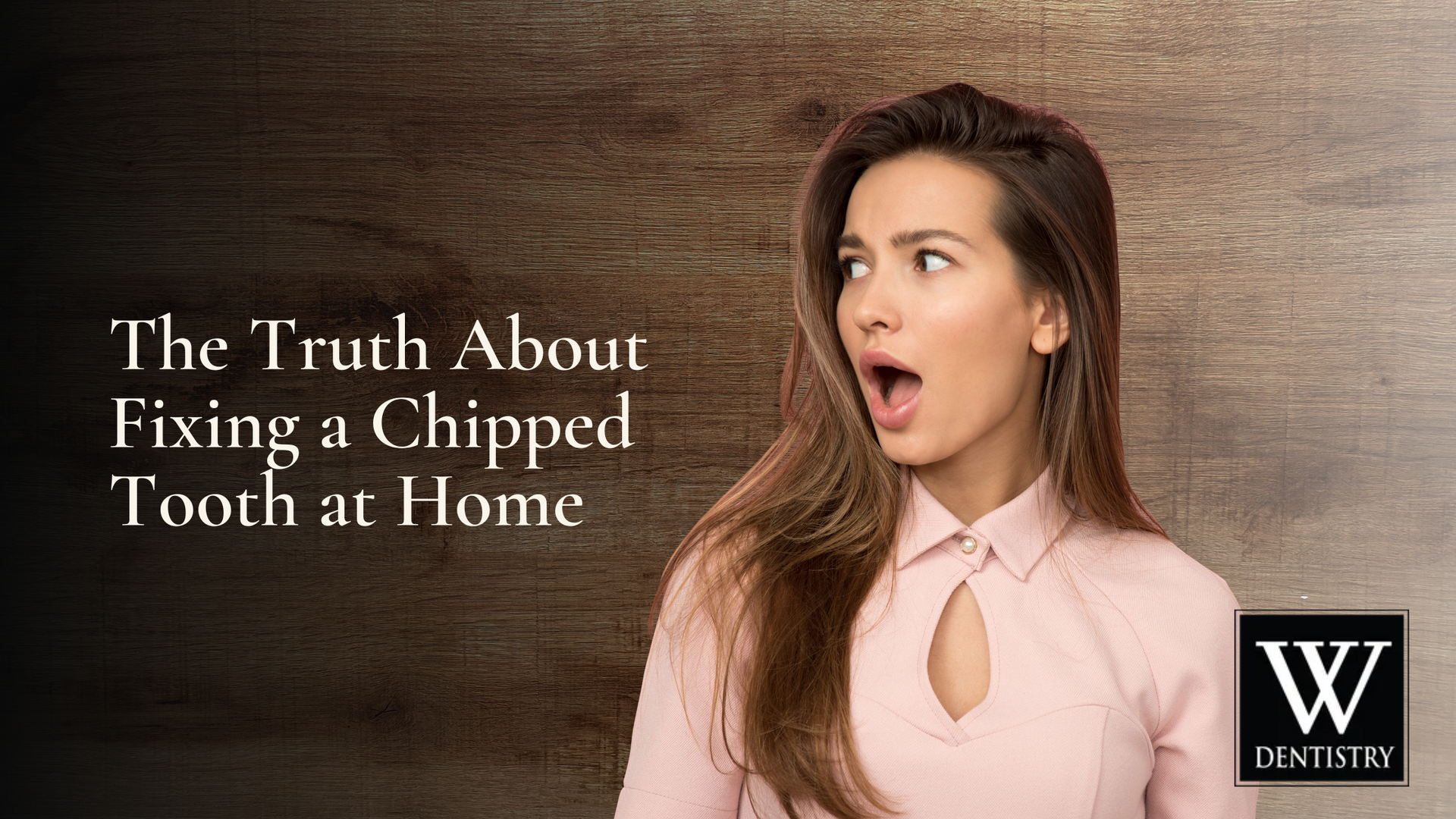Brown Stains on Teeth: Causes, Prevention, and Effective Treatments
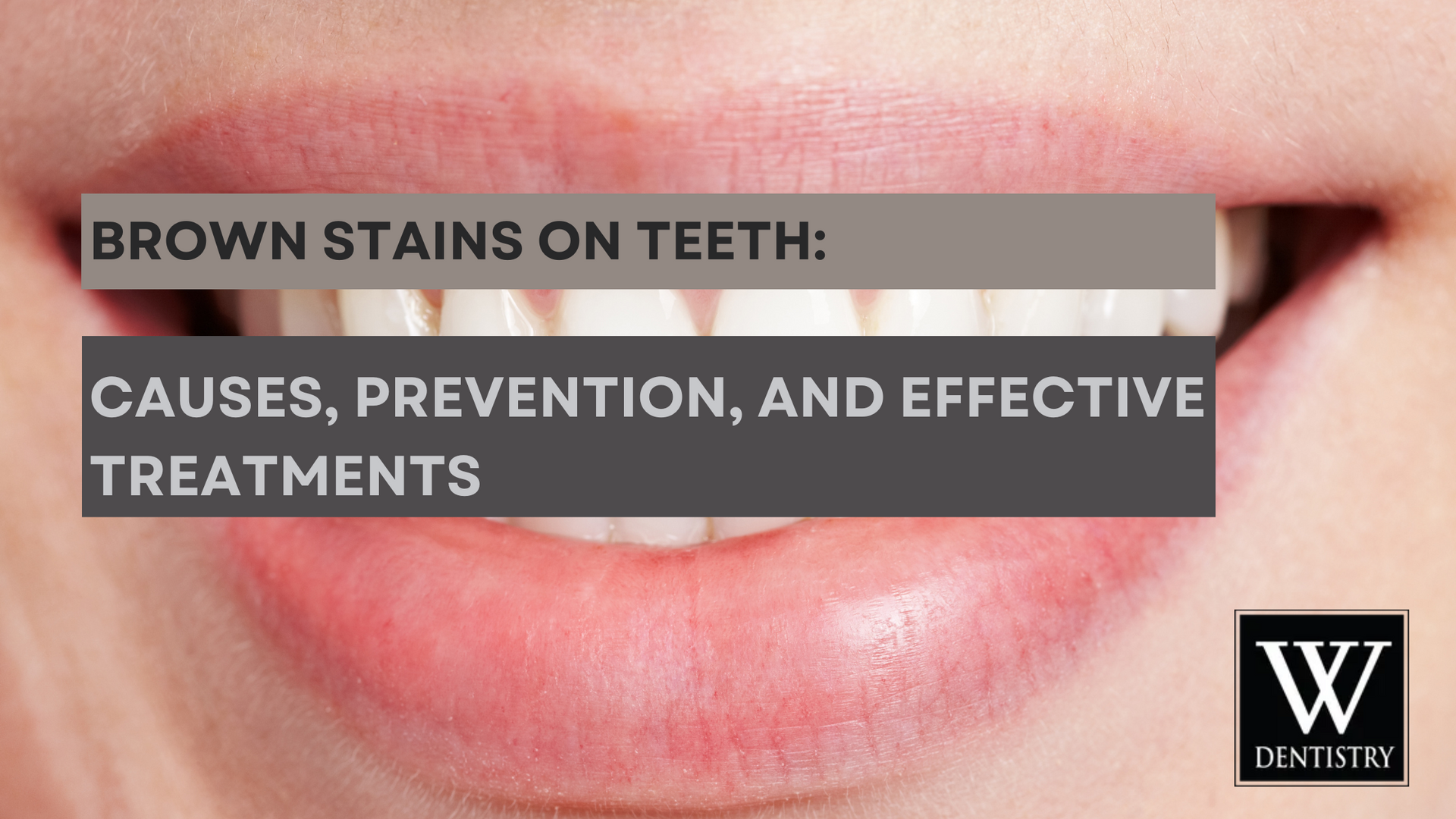
Source: Dr. Marketing
Brown stains on teeth are a common concern for many people, often affecting the appearance of their smile and overall confidence. Tooth discoloration, particularly brown stains, can develop for various reasons, including dietary habits, poor oral hygiene, or underlying dental issues. Understanding the causes of stains on teeth, how to prevent tooth discoloration, and the best ways to remove them is essential for maintaining a bright, healthy smile. Let’s dive deeper into the issue of tooth stains and explore effective solutions.
What Causes Brown Stains on Teeth?

Brown stains on teeth can occur due to a combination of both extrinsic and intrinsic factors. Extrinsic factors typically involve external influences such as the consumption of certain foods and beverages, tobacco use, or poor oral hygiene practices that allow plaque and tartar buildup. On the other hand, intrinsic factors relate to issues within the tooth structure itself, including genetics, certain medications, or the presence of dental fluorosis. Understanding these various causes is essential for effective prevention and treatment of brown stains on teeth. These are the most common culprits:
Dietary Habits
Certain foods and drinks, like coffee, tea, red wine, and cola, contain chromogens—pigments that stick to tooth enamel and cause extrinsic tooth stains. Dark berries and sauces can also stain teeth over time. These dietary choices are among the most common causes of tooth discoloration.
Tobacco Use
Smoking or chewing tobacco is notorious for leaving stubborn tobacco stains on teeth. The tar and nicotine in tobacco products adhere to the tooth’s surface, creating yellow or brown teeth stains that are difficult to remove without professional cleaning or teeth whitening treatments.
Poor Oral Hygiene
Inadequate brushing and flossing allow plaque and tartar to build up on teeth. Over time, this accumulation can lead to brown stains on teeth caused by hardened tartar. Proper oral hygiene is critical to prevent tooth discoloration and maintain a stain-free smile.
Dental Decay
Tooth decay can result in brown or black spots on teeth. These stains typically indicate cavities or other structural damage to the tooth. Plaque and tartar stains can exacerbate the problem, making professional dental treatment essential.
Fluorosis
Excessive fluoride exposure during childhood can lead to fluorosis, a condition that causes intrinsic tooth discoloration. Depending on the severity, fluorosis may appear as white streaks or brown stains on teeth.
Enamel Erosion
Acidic foods, beverages, and conditions like acid reflux can erode enamel, exposing the darker dentin beneath. This enamel erosion often results in yellow and brown teeth stains.
Medications
Certain medications, such as tetracycline antibiotics taken during tooth development, can cause intrinsic stains that appear brown, gray, or yellow. Tooth discoloration from medications is often challenging to treat.
How to Prevent Brown Stains on Teeth

Preventing stains on teeth requires a proactive approach to oral hygiene and mindful lifestyle choices. Regular brushing with fluoride toothpaste and daily flossing are essential for keeping plaque and tartar at bay, which are primary causes of discoloration. Using tools like a soft-bristle or electric toothbrush, as well as a water flosser for hard-to-reach areas, ensures a thorough clean. Rinsing your mouth with water after consuming stain-causing foods and drinks, such as coffee, tea, or cola, helps minimize discoloration, while chewing sugar-free gum stimulates saliva to wash away pigments. Limiting your intake of these beverages or drinking them through a straw can further reduce their impact on your teeth. Tobacco use, another major contributor to tooth stains, should be avoided entirely to protect both your oral health and the brightness of your smile. Lastly, scheduling regular dental check-ups at Woo Dental in Newmarket is crucial, as professional cleanings effectively remove tartar and surface stains, keeping your teeth bright and healthy.
Do Brown Stains on Teeth Indicate a Serious Dental Problem?
Brown stains on teeth can sometimes be more than just a cosmetic concern—they may signal underlying dental issues like cavities or gum disease. Cavities often start as small brown or black spots on the enamel, caused by the buildup of plaque and bacteria breaking down sugars. As the decay progresses, these spots can deepen and expand, eventually compromising the tooth’s structure. Similarly, gum disease, such as gingivitis or periodontitis, can lead to discoloration near the gum line due to plaque and tartar buildup. If brown stains are accompanied by symptoms like tooth sensitivity, pain, bleeding gums, or bad breath, it’s essential to consult a dentist promptly. Early intervention can prevent these conditions from worsening and ensure your teeth and gums remain healthy. Regular dental check-ups and maintaining good oral hygiene are key to addressing and preventing serious dental problems associated with brown stains.
How Does Smoking or Tobacco Use Lead to Brown Stains on Teeth?
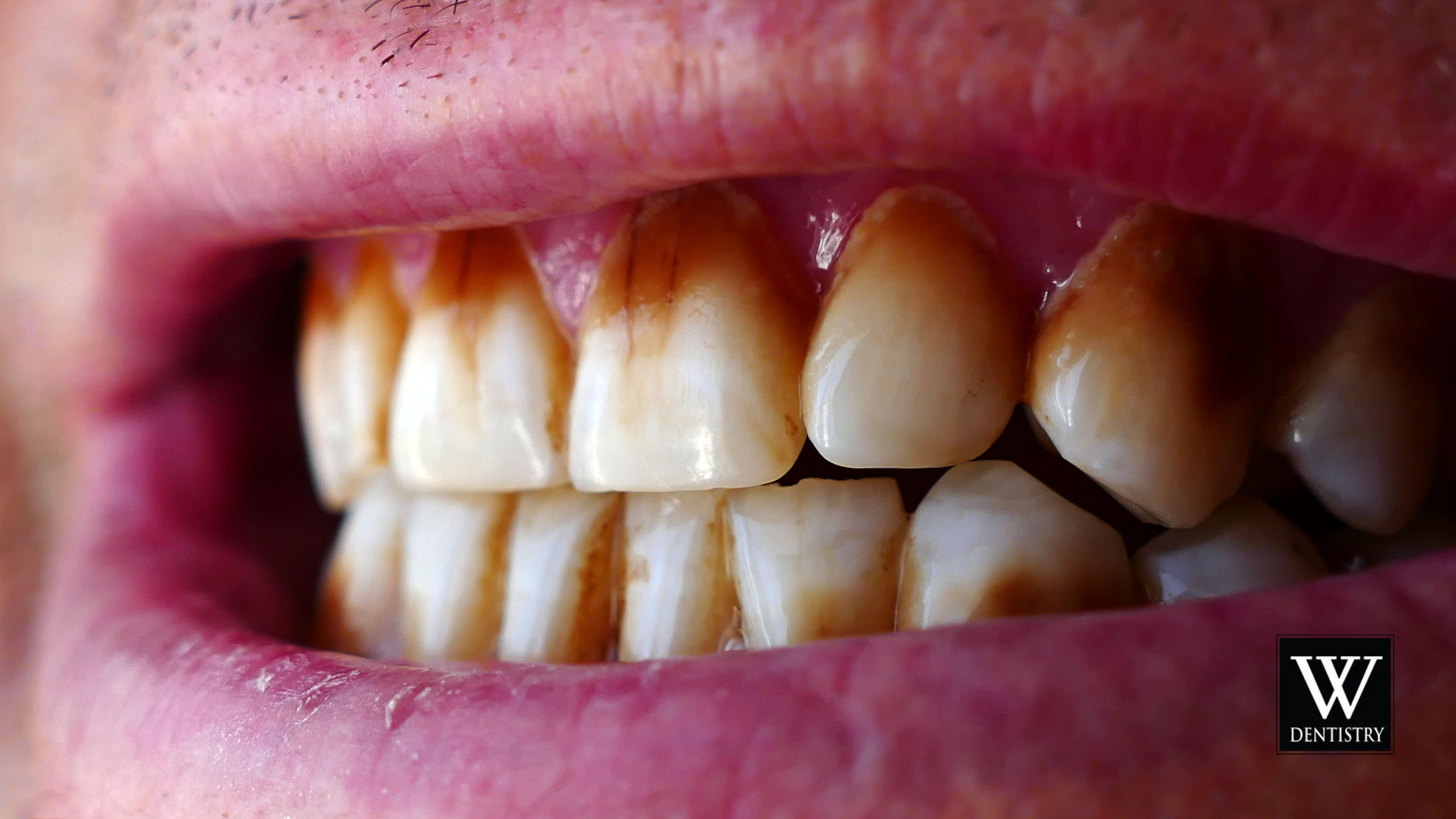
Smoking and tobacco use lead to brown stains on teeth due to the presence of tar and nicotine in tobacco products. Tar is naturally dark, while nicotine turns brown when it mixes with oxygen. When you smoke or chew tobacco, these substances stick to the surface of your teeth, especially on the enamel. Over time, this buildup becomes stubborn and difficult to remove with regular brushing alone. Additionally, smoking reduces saliva production, which hinders the natural rinsing of food particles and bacteria, further promoting plaque and stain formation. These stains not only affect the appearance of your teeth but can also contribute to gum disease and other oral health issues. Regular dental cleanings and quitting tobacco are the best ways to address and prevent these stains.
Treatment Options for Brown Stains on Teeth
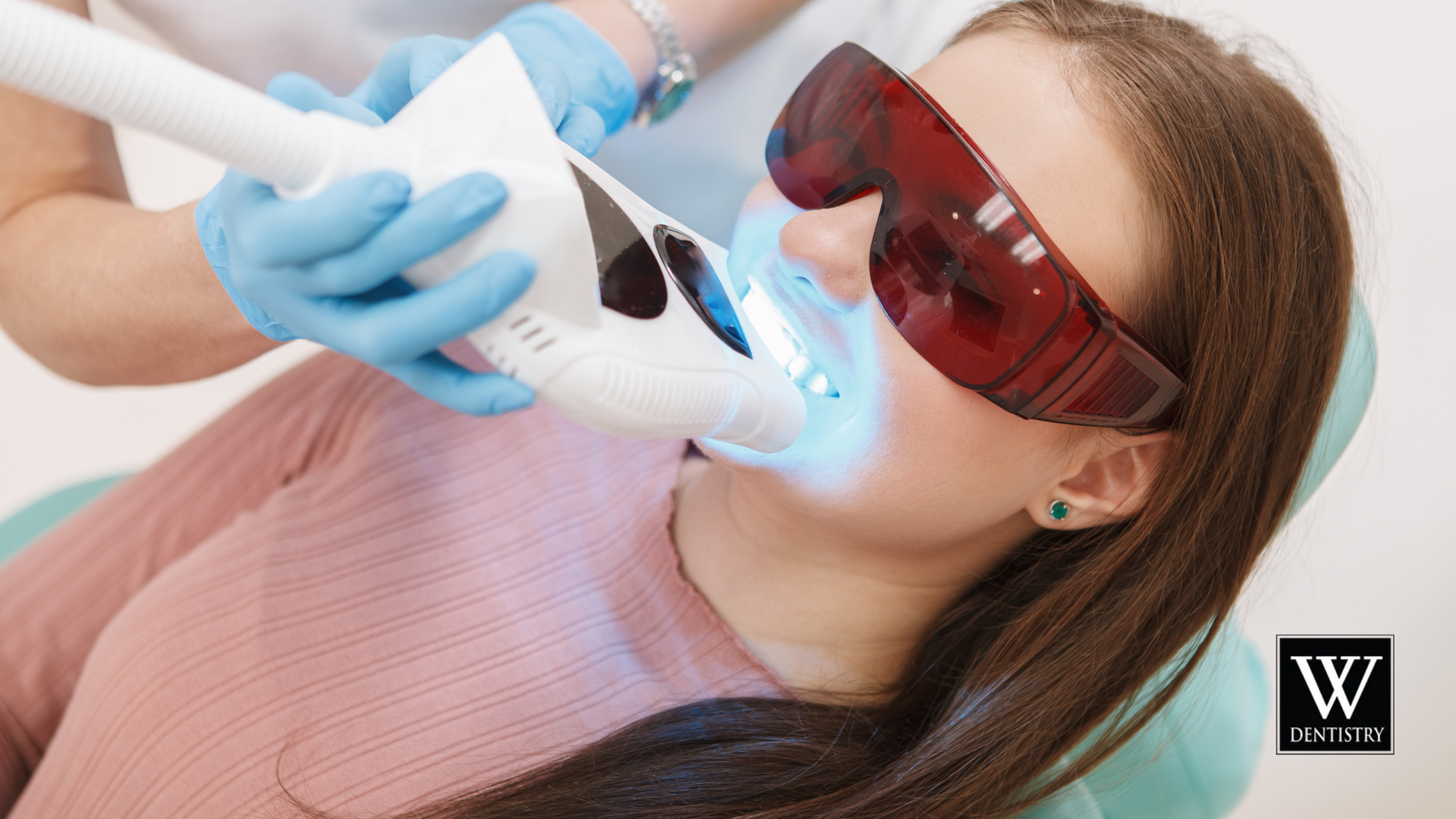
If brown stains have already developed on your teeth, there are several treatment options to restore your smile. The choice of treatment depends on whether the stains are extrinsic (surface-level) or intrinsic (deep within the tooth).
Professional Teeth Cleaning
For extrinsic stains caused by plaque and tartar buildup, professional teeth cleaning is highly effective. During your appointment, your dentist or hygienist will use specialized tools to remove tartar stains and polish your teeth, leaving them smooth and stain-free.
Teeth Whitening
Professional teeth whitening treatments are an excellent option for removing deeper extrinsic stains. These treatments use high-concentration bleaching agents to lighten stains and brighten your teeth. Whitening can also address discoloration from foods, drinks, and tobacco stains on teeth.
Dental Bonding
For intrinsic tooth discoloration that cannot be removed with whitening, dental bonding may be a solution. This treatment involves applying a tooth-colored resin to the stained areas, masking discoloration and restoring your tooth’s appearance.
Veneers
For severe staining or widespread discoloration, veneers provide a long-lasting solution. Porcelain veneers are custom-designed to cover the front surface of your teeth, creating a flawless, bright smile.
Fluoride Treatments and Sealants
For mild fluorosis or enamel erosion, fluoride treatments can strengthen your teeth and reduce the risk of further staining. Sealants can also protect teeth from discoloration and plaque buildup.
When to Seek Professional Help For Brown Stains on Teeth
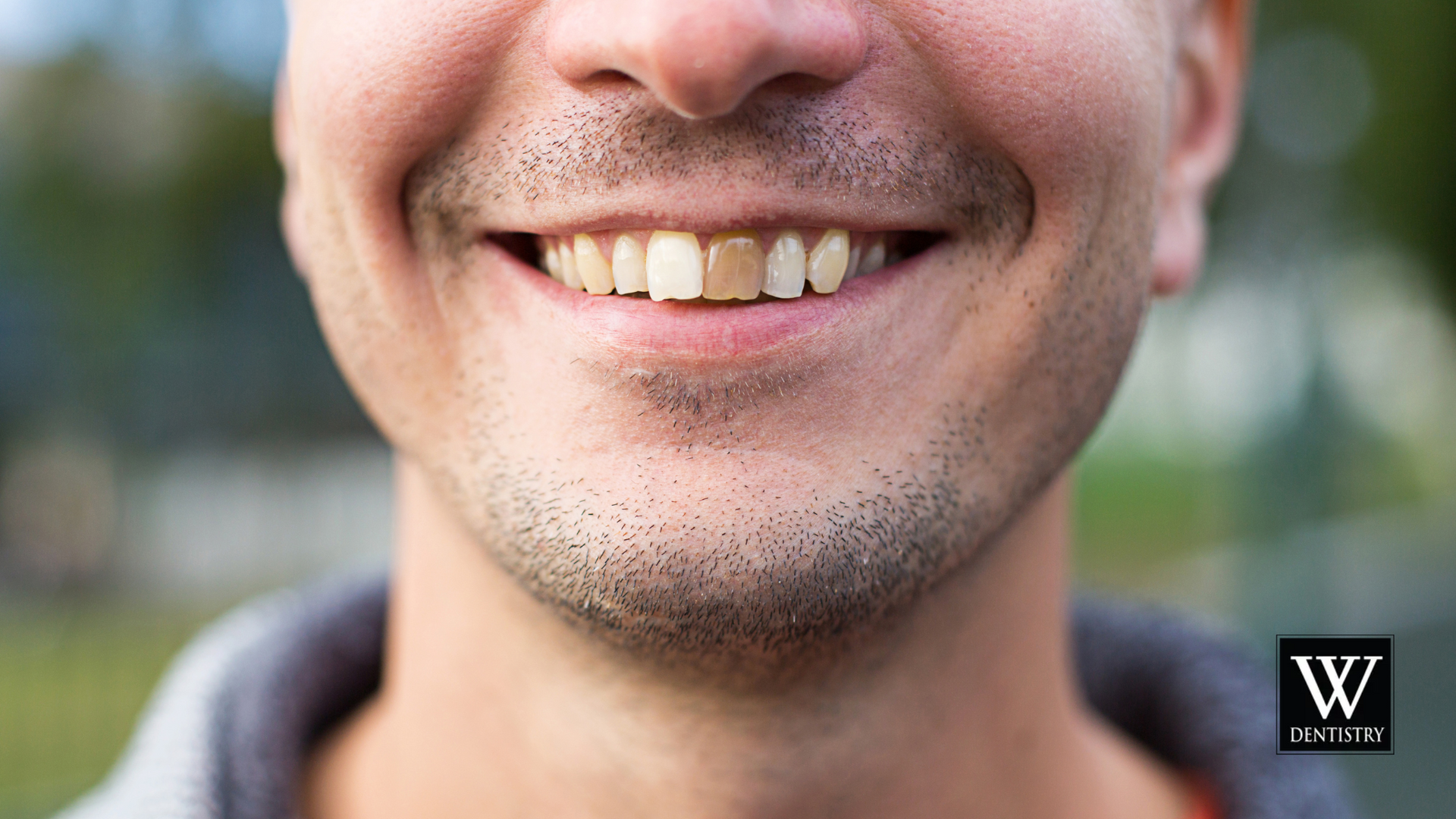
While some stains on teeth can be managed with at-home care, others require professional treatment. Contact our dentist at Woo Dental if:
- Stains persist despite good oral hygiene.
- You notice additional symptoms like tooth sensitivity or pain.
- Discoloration is accompanied by visible cavities or gum issues.
Our dentist can assess the cause of the stains and recommend the most appropriate treatment for your situation.
The Effectiveness of Professional Teeth Whitening for Brown Stains
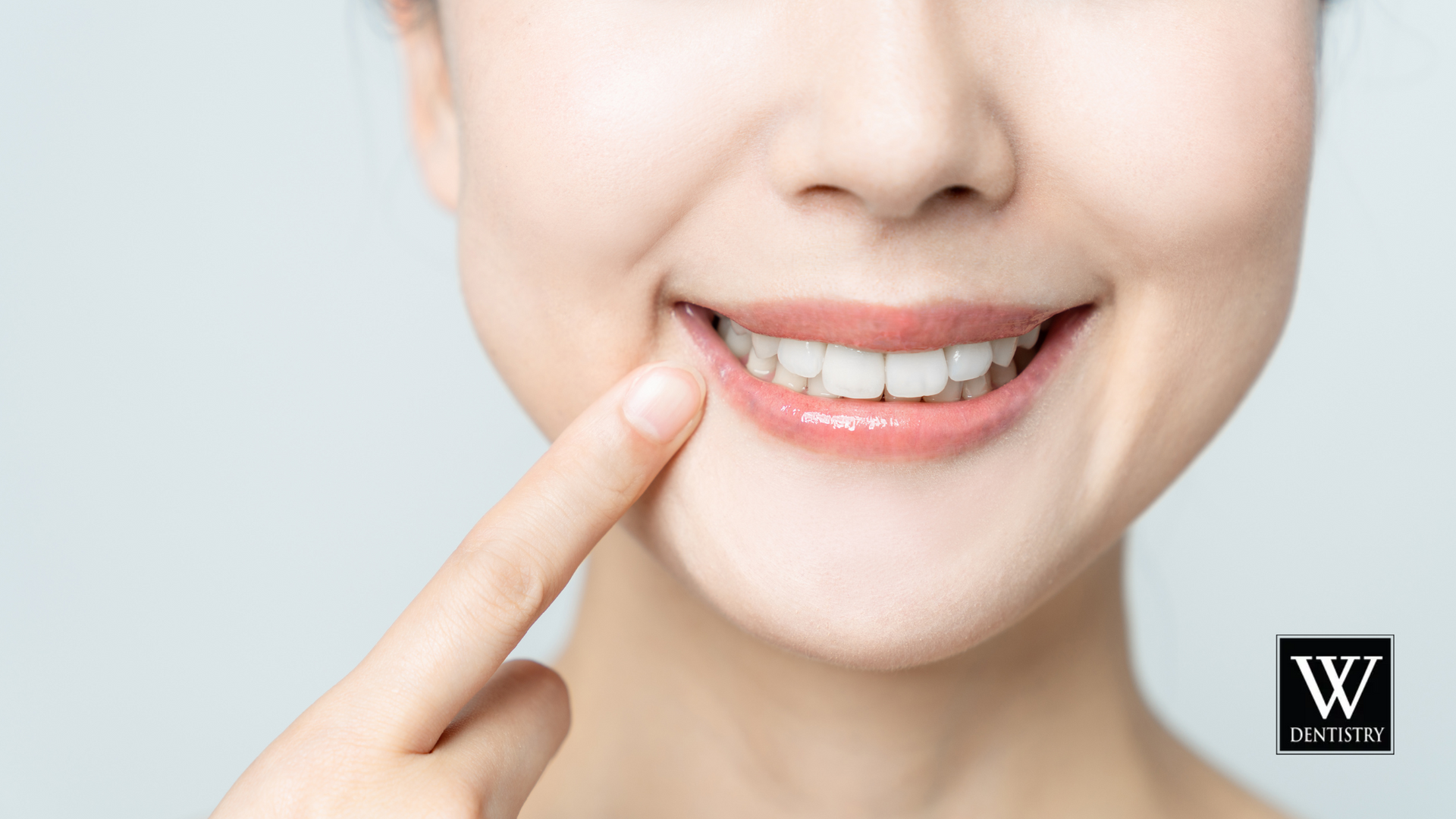
Professional teeth whitening treatments are highly effective at removing many types of brown stains, particularly those caused by external factors like coffee, tea, tobacco, and poor oral hygiene. These treatments use high-concentration bleaching agents to penetrate the enamel and break down stain molecules, brightening the teeth by several shades in just one session.
However, the success of whitening depends on the nature of the stains. Extrinsic stains, which sit on the surface of the teeth, respond exceptionally well to whitening. Intrinsic stains, such as those caused by medications like tetracycline or conditions like fluorosis, may not lighten as effectively and could require alternative treatments like veneers or dental bonding. Consulting with a dentist ensures you get a tailored approach that addresses the specific type and cause of your stains, helping you achieve the brightest, healthiest smile possible.
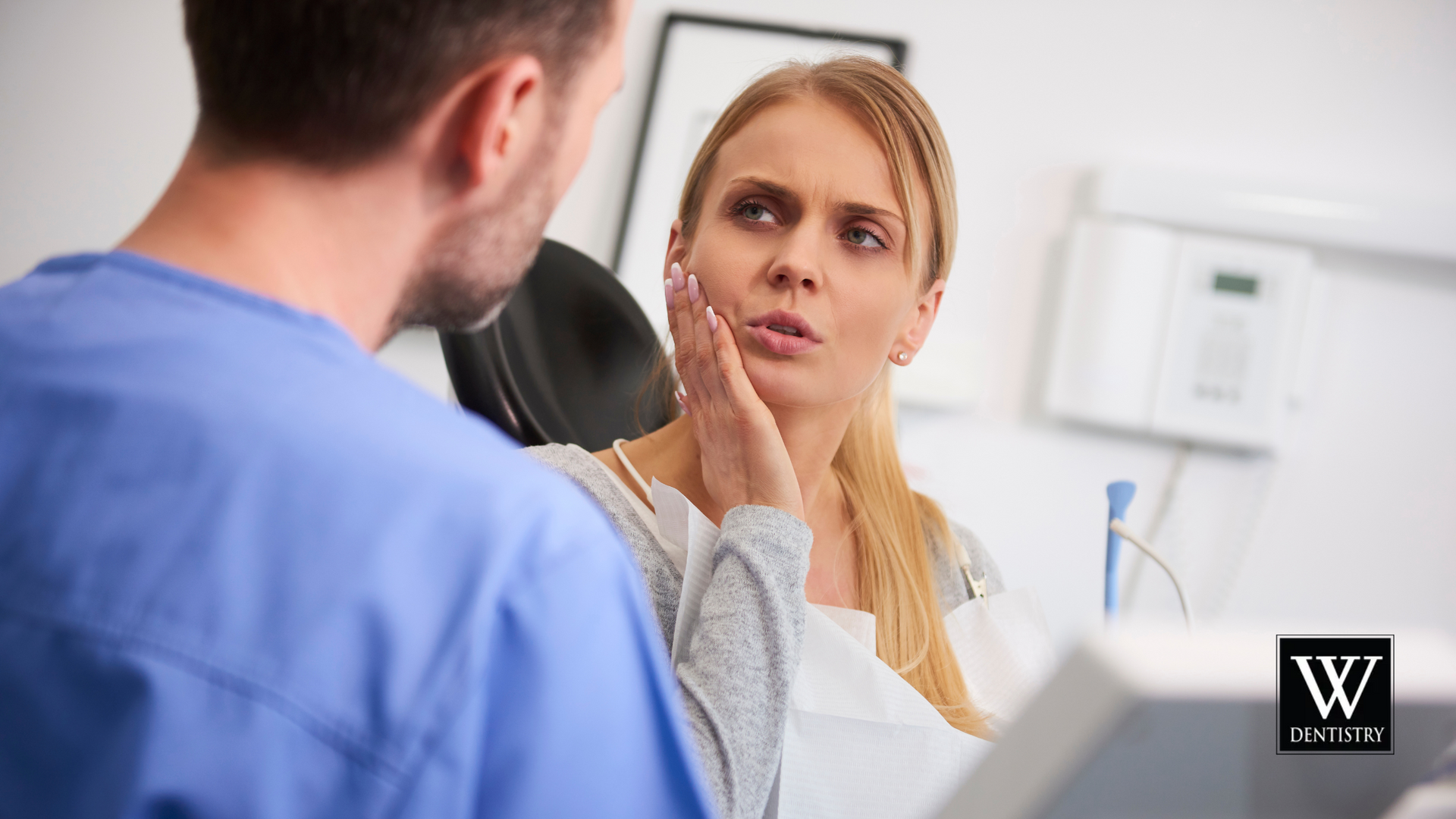
Brown stains on teeth are a common but manageable issue that can affect your smile's appearance and confidence. Understanding the causes of tooth discoloration, practicing good oral hygiene, and seeking professional dental care are key steps in preventing and treating stains on teeth. Whether you are dealing with coffee stains, tobacco stains, or intrinsic tooth discoloration, there’s a solution to help restore your bright, healthy smile.
If you are concerned about brown teeth stains or want to explore treatments like teeth whitening or veneers, schedule an appointment with our dentists. We can provide personalized advice and help you achieve a stain-free smile that you will be proud to show off.

